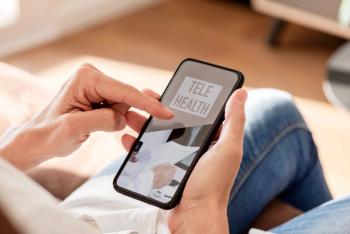
CARES Act expanding telemedicine access
Funding is brining critical virtual care to remote areas of the nation.
Recently, Congress enacted a $2.5-trillion coronavirus spending bill that increases access to and Medicare reimbursements for telehealth services including virtual visits, prescriptions for controlled substances, training, and electronic health record support.
“For the safety of our patients as well as our staff, emptied out of their offices for in-person office visits, it was critical to switch to remote visits with telehealth video or telephone. Having the regulations around those visits get loosened and expanded to enable all clinicians to get paid is necessary for the sustainability of these medical practices,” he comments.
Trending:
Indeed, the “Coronavirus Aid, Relief, and Economic Security Act’’ or “CARES Act,” passed in March, allots $200 million to the Federal Communications Commission “to prevent, prepare for and respond to coronavirus” with services and devices that “enable telehealth services during an emergency.” Funding also includes $25 million for distance learning and telemedicine, and $258 million to ReConnect, the U.S. Dept. of Agriculture, to bring high-speed broadband to underserved rural areas.
“There are significant limitations regarding broadband coverage and cell phone access in rural areas. That’s why regular phone call visits, possible through standard landline, are critical as we expand remote possibilities,” explains McLean who underscores the importance of telehealth to reaching vulnerable populations in remote communities.
“Many individuals, especially seniors, may not be as adept with the technology of video visit platforms, might not have the broadband coverage where they live-especially rural areas-and might not have equipment, like a smart phone. For that reason, the ACP emphasizes telephone-audio-only visits to enable remote access to physicians. Without that, sustainability of physician practices is a great risk,” warns McLean.
The bill also provides $80 million to the Agency for Healthcare Research and Quality, Rockville, MD, to evaluate health system response to coronavirus and telehealth investments at facilities, such as the University of Southern California Verduga Hills Hospital, which currently uses telehealth to screen emergency department (ED) patients.
Read More:
“Triaging away from EDs with the surge of patients with the Covid virus is critical. If we can manage patients and deliver care without them coming to the ED that is important for their safety,” asserts McLean who practices at Northeast Medical Group of Yale New Haven Health, CT, which employs telehealth.
“The large ambulatory network, of which I am a part, just started video visits in January, largely as part of our walk-in practice. It has been the standard over the past three weeks after a very rapid ramp up and training to do documentation and billing,” comments McLean who notes the learning curve for physicians using telemedicine.
“Once clinicians get used to new workflows around virtual visits, they appreciate how much information can be reviewed and how many aspects of chronic conditions and acute illnesses can be evaluated. In the current era of necessary social distancing, we must find ways to care for acute and chronic patients remotely,” he says.
Newsletter
Optimize your practice with the Physicians Practice newsletter, offering management pearls, leadership tips, and business strategies tailored for practice administrators and physicians of any specialty.









